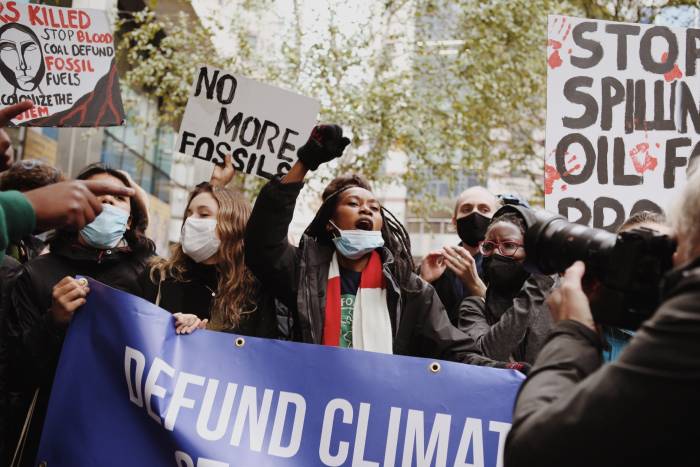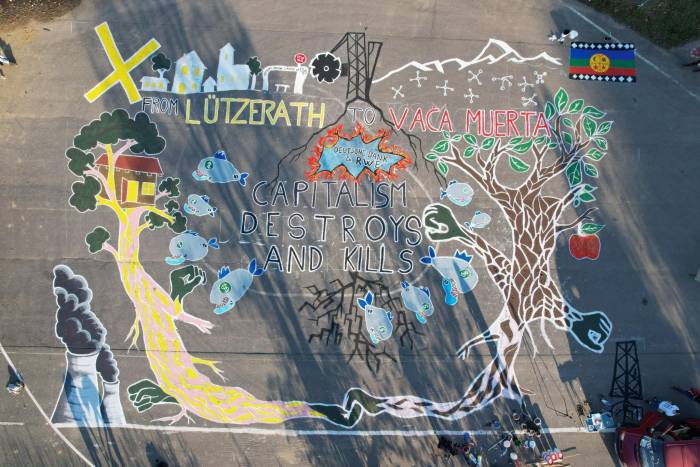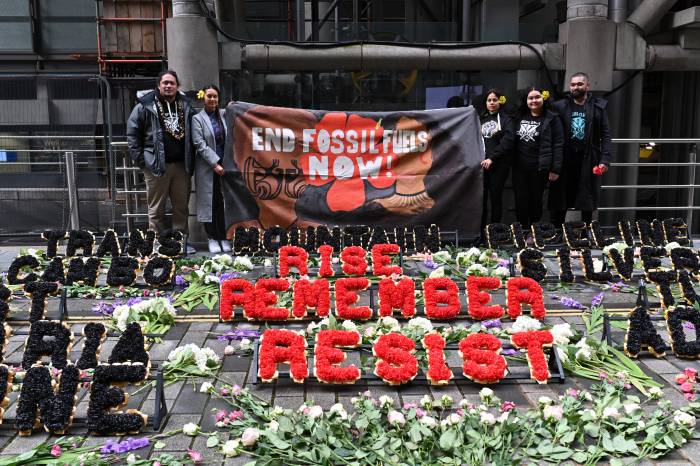Today is the first day of the UN climate talks (Cop26) being held in Glasgow. These climate talks are an important opportunity to make significant progress on how the world addresses the climate crisis.
One of the many issues with these climate talks is that while heads of state are gathered to talk about climate change, they’re officially not supposed to talk about energy.
What?
The talks are focused on limiting climate impacts, how countries adjust to a changing climate in the future and limiting emissions, but energy, specifically fossil fuels, is never addressed directly. So even though the science is clear about fossil fuels being the biggest contributor to a rapidly changing climate they are never discussed in the official negotiations. Fossil fuels are the elephant – or the dinosaur – in the room.
Though this year is different, and energy might just be the center of attention, here’s why:
1. The money
In September, China announced that they would stop building coal energy plants abroad. As one of the world’s biggest coal producers, China’s announcement could be a big step for renewable energy.
China’s commitment to stop funding coal projects abroad is a huge win for the climate movement — especially in the lead-up to the global climate talks at #COP26.
Full statement transcript here: https://t.co/hifVCj8h5G pic.twitter.com/Gtwk86kN5D
— 350 dot org (@350) September 21, 2021
People across the world are already struggling with the impacts of the climate crisis: extreme droughts, wildfires, storms and floods. Moving investments away from coal and rather into renewable sources could help respond to the scale and urgency of the climate emergency and help us build something new. We believe that it is the duty of rich countries who have historically polluted the most and contributed more to the climate crisis, to pull money out of fossil fuels, and use it to fund a just, clean, renewable energy transition everywhere.
2. The energy crisis
As the world starts to go back to normal after everything was halted during COVID-19 lockdowns, we are seeing energy prices increase drastically, causing a global “energy crisis”. To alleviate the cost to the end-customer, governments around the world are spending trillions of public ‘stimulus’ funds to minimize these energy costs, which are mostly from fossil fuels. While this helps pocketbooks in the short-term, money spent on the wrong things now, such as fossil fuel subsidies, is not only directly fueling the climate crisis, but is propping up the dying fossil fuel industry when world leaders should be investing in safer, renewable energy.
World leaders subsidizing coal, oil and gas are essentially padding the pockets of fossil fuel corporations and are slowing down the ability to take more immediate and decisive climate action.
3. Equity issues
Even though the UN climate talks have never really been accessible, equitable or just, this year is much less inclusive due to COVID-19 vaccination inequality.
The issue of vaccine access mirrors climate injustice. The rich countries who are refusing to fulfill their responsibility for climate change are the same ones that are refusing to support a global vaccination campaign.
This year, many activists from countries hardest hit by climate change are unable to attend the climate talks because of access to vaccines, travel restrictions and travel expenses.
Access to resources is imperative for countries that are least responsible, yet bearing the brunt of the effects of the climate crisis.
4. Lies, exposed
More troubling is how governments and the fossil fuel industry are communicating to the public. The rising energy prices are being blamed on the cost of the energy transition. What is not being communicated is that fossil fuels are artificially cheap, for decades governments have been subsidizing these costs instead of spending money to invest in renewable energy sources. With the falling price of renewable energy it makes little economic sense not to invest in an energy transition. Paying for disasters that are caused by climate change and citizens paying the bill for floods and fires is much more costly.
We’ve also seen recently that governments in fossil fuel producing countries like Brazil, Argentina, Australia and Saudi Arabia have been lobbying to water down scientific reports that highlight the contributions of fossil fuels to climate change.
How can we expect the climate talks to be successful if we know governments are distorting the truth?
5. The climate movement
These four reasons are exactly why it’s so important that civil society is present at these climate talks. We need to show decision-makers that people know that energy is central to this debate and demand that action is taken to cut ties with the fossil fuel industry.
- Youth strikers from MAPA communities outside Standard Chartered bank in London calling for the bank to end fossil finance
- Activists from Luetzi Bleibt send a message of solidarity to the people of Vaca Muerta, Argetina
- Activists with banners protesting against East African Crude Oil Pipeline (EACOP), in Kenya
- Pacific Island Warriors, Silver Town Tunnel local campaigners, and others activists in front of Llyod’s bank in London
Sadly, based on the past performance, we do not expect these UN climate talks to deliver on what is needed for the climate but we will continue to push for the change we know is needed to build a better future. It is the relentless pressure of civil society at each and every UN climate talk that has prevented even worse outcomes. We cannot afford to give up now.



